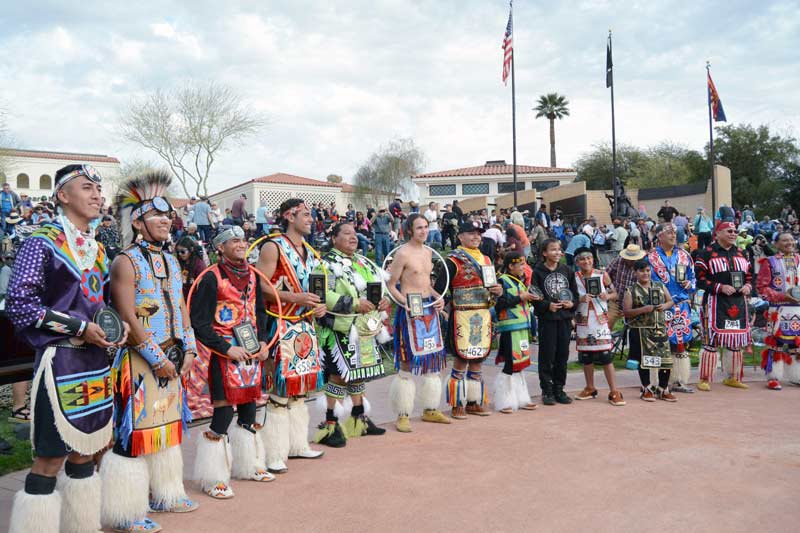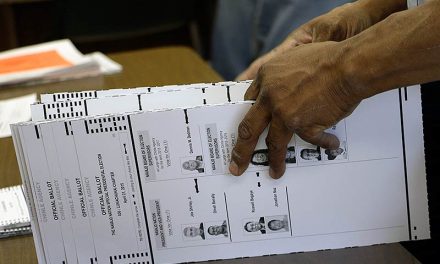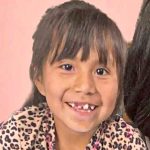
World Hoop Dance Championship brings dancers far and wide

Navajo Times | Holly James
Winners of the 33rd Annual World Hoop Championship pose for a group photo after competing for two days at the Heard Museum in Phoenix over the weekend.
PHOENIX
The world championship hoop dance competition, held at the Heard Museum, didn’t disappoint this past weekend.
This year a record number of hoop dancers competed in the 33rd World Championship Hoop Dance contest in Phoenix.
The event welcomed 108 dancers, a plethora of talent who entertained a crowd of onlookers, as well as compete for the world champion hoop dance title.
Dancers were judged on creativity, originality, speed, precision, timing and rhythm, and showmanship.
Hoop-dancing could be considered a competitive sport with the tremendous amount of physical cardio, agility, and endurance needed.
In this weekend’s competition, the adult and senior categories danced for seven minutes, and the youth and teen danced for five minutes.
Most dancers train and practice year-round to prepare for this prestigious event that brings a variety of competitors from across the world.
Only males in every category advanced to the final competitions that were held on Sunday.
The host southern drum was “The Cozad Singers,” and the northern drum was “The Thunder Boy Singers.” With the record 108 contestants, each drum roughly sang about 54 songs. A handful of the competitors drummed and sang for their fellow competitors sharing that feeling of k’é amongst many Nations.
First place in the senior division went to Moontee Sinquah, Hopi-Tewa, Choctaw.
“I was very blessed to be a part of this event,” Sinquah said. “This event brings so many relatives from the U.S. and Canada to participate and to support us really meant a lot.”
Third place in the teen division went to Jerrhan First Charger, 16.
“I am just overjoyed. I am more thankful for dancing, for being here, and for my family,” First Charger said. “To me, it is not about the money or title. It is about being able to dance and dancing for those who cannot.”
First place in the adult competition went to Scott Sinquah, Gila River, Pima/Hopi-Tewa, Cherokee, and Choctaw. Scott and Moontee are not related.
“I am not sure that it has hit me yet,” Scott Sinquah said. “I am happy. I have been dancing since I was 4 years old.”
Scott grew up in Phoenix.
“The reason that we Indigenous dance is for healing,” Scott said. “We must never forget that.
“We dance for healing of our Indigenous people and healing for the world overall Indigenous or non-Indigenous,” he added, “this is something that brings us all together through healing.”








 Highway 264,
Highway 264, I-40, WB @ Winslow
I-40, WB @ Winslow